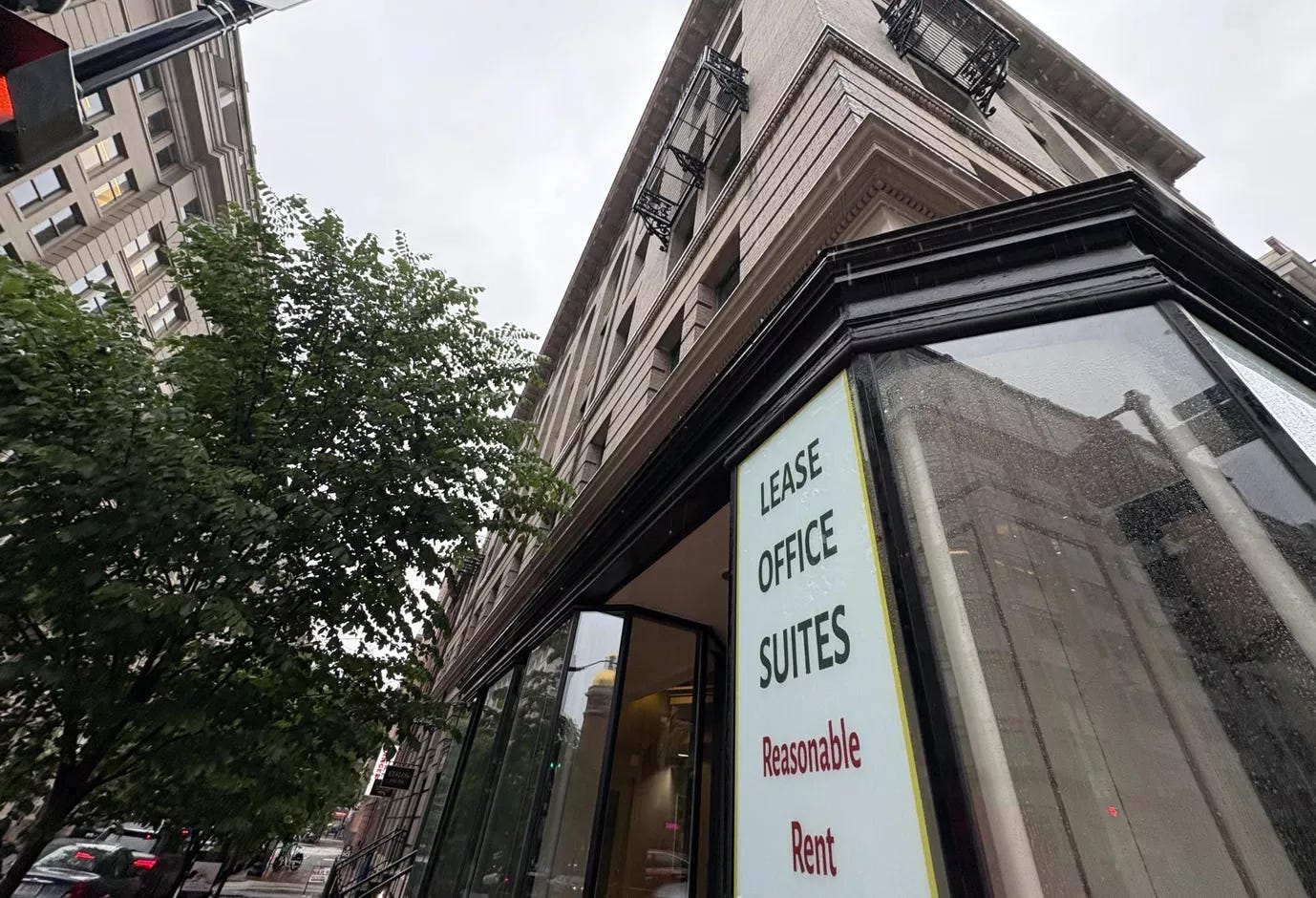👋 Happy Tuesday! The pandemic permanently increased WFH rates equivalent to almost 40 years of pre-pandemic growth, with remote work jumping from just 7% of paid workdays in 2019 to 28% today—a shift that would have taken decades under normal circumstances.
In this week’s edition:
🏢 U.S. Office Vacancy Hits New Record
📊 Mid-Week Most Popular for Structured Hybrid
👶 Younger CEOs, More WFH
Current Subscribers: 10,031
Please forward to colleagues and friends!
THIS WEEK’S FLEX FOCUS 🔍
U.S. Office Vacancy Hits Another Record High
U.S. office vacancy hit a new record high of 20.6% in Q2 2025—the sixth consecutive quarter of record-breaking rates, according to Moody's Analytics.
The milestone represents a dramatic jump from 17% vacancy five years ago, before the pandemic reshaped work patterns. Despite headlines touting return-to-office mandates from corporate America, these efforts "have done little to stem the bleeding," the report notes.
The federal government is exacerbating the problem, with planned lease terminations expected to flood the market with additional space over the next two years. Washington D.C. alone lost 850,000 square feet of federal occupancy in just the first half of 2025.
While some cities, such as Birmingham and Miami, saw rent growth and declining vacancy rates, tech hubs, including Seattle, Portland, and San Jose, experienced negative rent growth and rising vacancy rates, highlighting how the structural shifts in where and how people work continue to reshape office demand.
FLEX WORK QUICK HITS 💥
Stay ahead of the curve with our curated roundup of the trending flexible work stories making waves right now. Here's what you need to know 👇
HR Drive: HR expert warns against trying to "copy and paste 2019 into 2025"—companies need intentional strategies for managing blended workforces, not pre-pandemic norms.
Financial Times: Hybrid work and AI are disrupting traditional on-the-job training as junior staff observe less and routine skill-building tasks get automated.
Fortune: ABM Industries CEO says RTO battles aren't over—many CEOs secretly plan to add 1-2 more office days as the labor market shifts power back to employers.
Forbes: Remote work requires intentional motivation strategies, including personalized recognition, virtual team-building, flexible autonomy, and connecting roles to the company mission.
STAT OF THE WEEK 📈
The Mid-Week Sweet Spot for Structured Hybrid
Tuesday through Thursday remain the most common days for Structured Hybrid firms with a Specific Days (or Minimum Percentage and Specific Days of the week) policy. Fridays are the least common, with only 7% of these firms requiring Friday attendance.
Out of all firms with a Structured Hybrid approach, only 1% require Friday attendance (7.4% of 16.5% of Structured Hybrid firms requiring Specific Days).
ICYMI 📅
Take Five
We're launching a quick survey about meeting effectiveness! Take 5 minutes to share your insights. We’ll share the key findings with all subscribers!
FLEXPERT INSIGHTS 🧠
CEO Age Drives Remote Work Policies More Than You'd Think
New data from WFH Research's monthly U.S. Survey of Working Arrangements and Attitudes (SWAA) reveals that employees working for CEOs under 30 have more than twice the WFH rate compared to those with CEOs over 50. The data shows younger CEOs offer 44% of paid days as remote work versus just 20% for older CEOs.
While this might seem to confirm generational stereotypes about tech-savvy millennials embracing flexibility, the researchers caution against jumping to conclusions. The pattern likely reflects deeper differences in industry, company culture, and workforce composition rather than pure age bias.
Interestingly, the research also found that female CEOs initially appeared more supportive of remote work—until researchers controlled for age. It turns out female CEOs are simply younger on average, and when comparing leaders of the same age group, gender differences in remote work policies virtually disappeared.
COMPANY SPOTLIGHT ✨
Corning Incorporated, established in 1851, is a globally recognized leading technology innovator specializing in specialty glass, ceramics, and optical physics, renowned for products such as Gorilla Glass. The company envisions a world interconnected by glass and united by a shared sense of purpose, striving to enhance people's lives while making a significant societal contribution. Corning's headquarters are in Corning, New York, with operations in over 30 countries worldwide.









